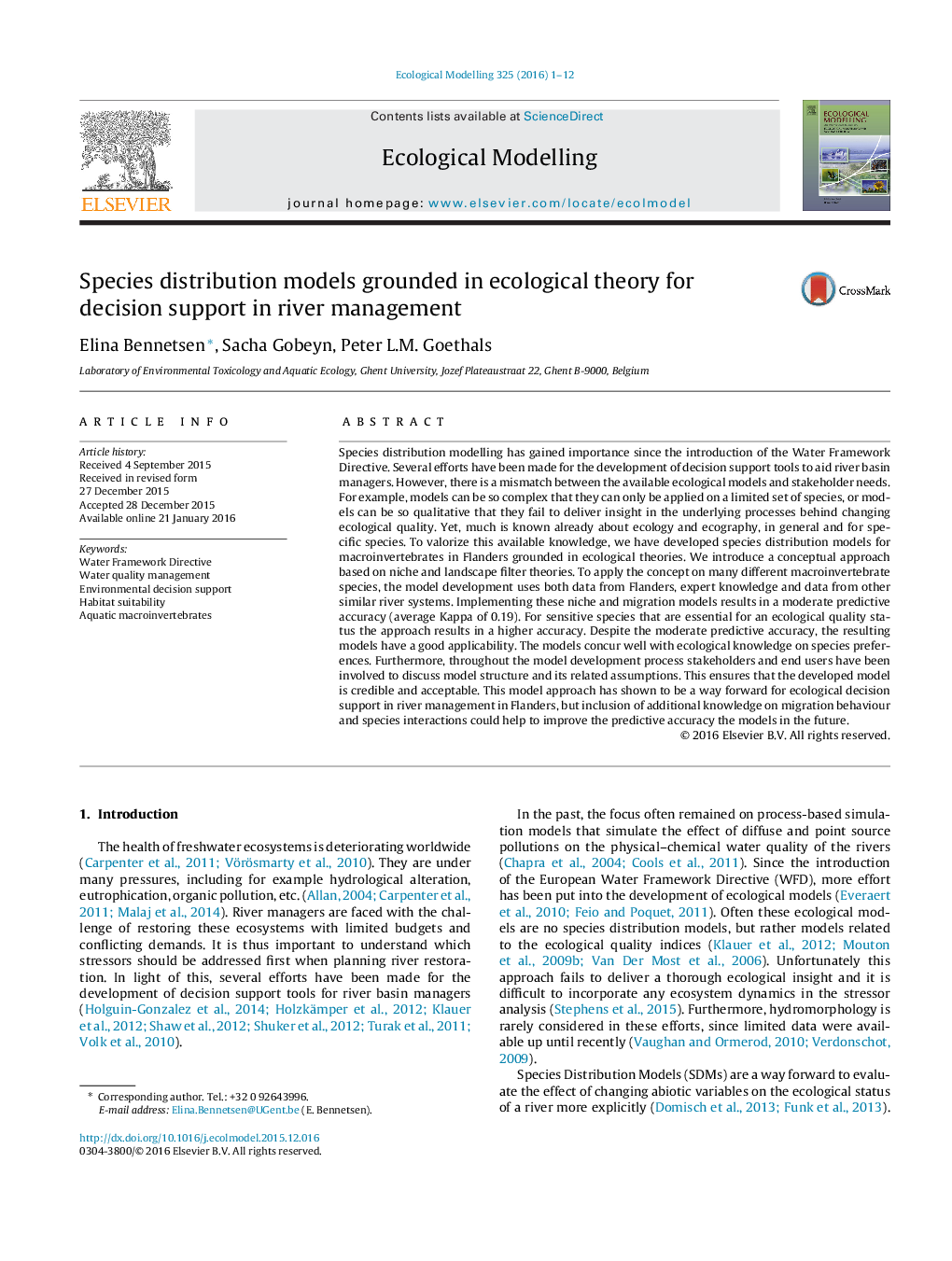| Article ID | Journal | Published Year | Pages | File Type |
|---|---|---|---|---|
| 4375578 | Ecological Modelling | 2016 | 12 Pages |
•We developed species distribution models supporting river management in Flanders.•The models were based on landscape filter and ecological niche theories.•Models were scored on their accuracy and ecological soundness.•Stakeholder needs were considered throughout the model development process.•The approach resulted in an increased credibility and acceptability for model users.
Species distribution modelling has gained importance since the introduction of the Water Framework Directive. Several efforts have been made for the development of decision support tools to aid river basin managers. However, there is a mismatch between the available ecological models and stakeholder needs. For example, models can be so complex that they can only be applied on a limited set of species, or models can be so qualitative that they fail to deliver insight in the underlying processes behind changing ecological quality. Yet, much is known already about ecology and ecography, in general and for specific species. To valorize this available knowledge, we have developed species distribution models for macroinvertebrates in Flanders grounded in ecological theories. We introduce a conceptual approach based on niche and landscape filter theories. To apply the concept on many different macroinvertebrate species, the model development uses both data from Flanders, expert knowledge and data from other similar river systems. Implementing these niche and migration models results in a moderate predictive accuracy (average Kappa of 0.19). For sensitive species that are essential for an ecological quality status the approach results in a higher accuracy. Despite the moderate predictive accuracy, the resulting models have a good applicability. The models concur well with ecological knowledge on species preferences. Furthermore, throughout the model development process stakeholders and end users have been involved to discuss model structure and its related assumptions. This ensures that the developed model is credible and acceptable. This model approach has shown to be a way forward for ecological decision support in river management in Flanders, but inclusion of additional knowledge on migration behaviour and species interactions could help to improve the predictive accuracy the models in the future.
